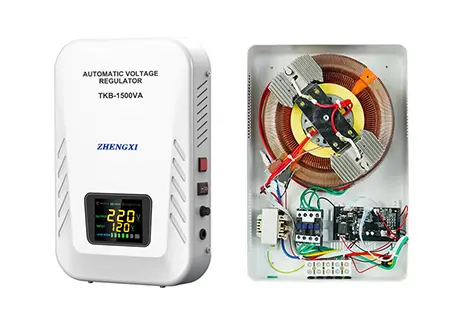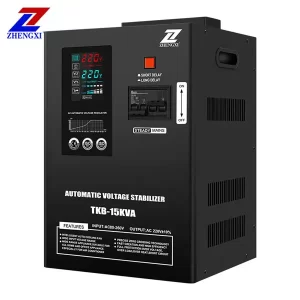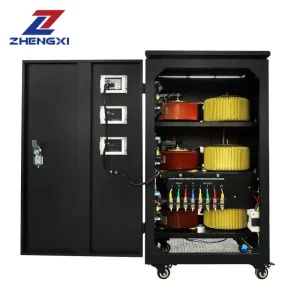A voltage stabilizer is a critical device that protects your appliances from unpredictable power supply fluctuations. But what if you skip using one? Let’s explore the risks of neglecting a stabilizer and why it’s a non-negotiable safeguard for your electronics.
Consequences of Not Using a Stabilizer———What Happens If You Don’t Use a Stabilizer ?
- Appliance Damage:
Voltage spikes or drops can fry circuits, damage motors (in ACs, refrigerators), or burn out sensitive components in TVs, computers, and routers. Repairs or replacements are costly. - Reduced Lifespan:
Even minor fluctuations strain internal parts over time. Appliances like washing machines or inverters may fail prematurely without regulated power. - Higher Energy Bills:
Unstable voltage forces devices to draw excess power, increasing energy consumption by up to 20%. - Safety Hazards:
Severe surges can cause overheating, sparks, or electrical fires, especially in outdated wiring systems. - Data Loss:
Computers and servers risk sudden shutdowns, corrupting files or losing unsaved work. - Voided Warranties:
Many manufacturers reject claims if damage is traced to voltage instability without a stabilizer.
Why a Stabilizer Is Essential
A stabilizer maintains a steady voltage output, shielding devices from:
- Overvoltage (spikes/surges).
- Undervoltage (brownouts/sags).
- Frequency fluctuations (common in generators).
For high-power appliances (ACs, refrigerators) or sensitive gadgets (TVs, PCs), a stabilizer is a must-have, not an option.
FAQs: Stabilizers and Their Importance
Q1: Can I use a surge protector instead of a stabilizer?
A: Surge protectors block sudden spikes but don’t regulate low/high voltage. Stabilizers offer comprehensive protection.
Q2: How do I choose the right stabilizer?
A: Match the wattage to your appliance’s rating. For example, a 1.5-ton AC needs a 2000–3000VA stabilizer.
Q3: Are stabilizers noisy?
A: Modern stabilizers operate silently. Older models may hum slightly during voltage correction.
Q4: Do stabilizers increase electricity bills?
A: No—they optimize voltage, reducing energy waste from power fluctuations.











